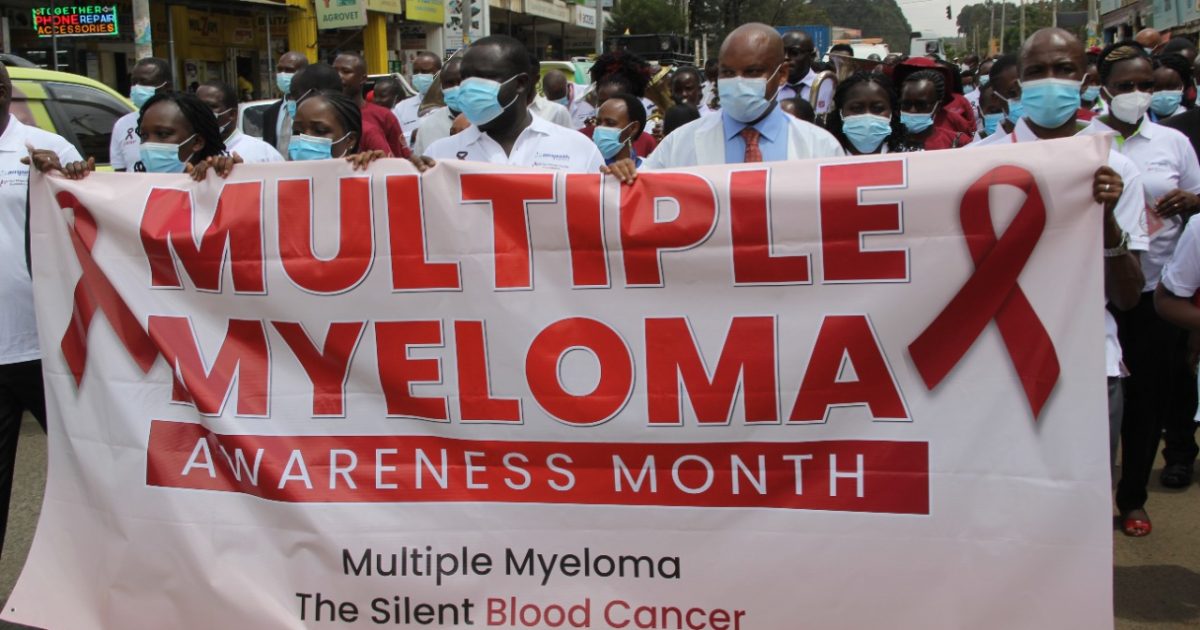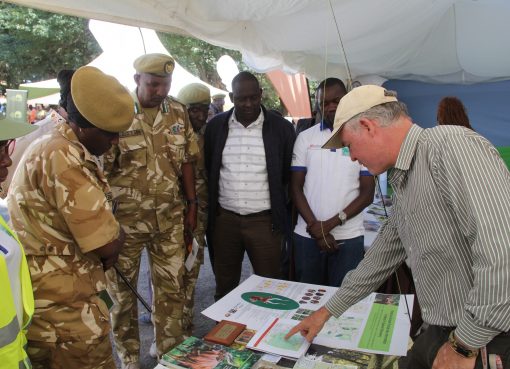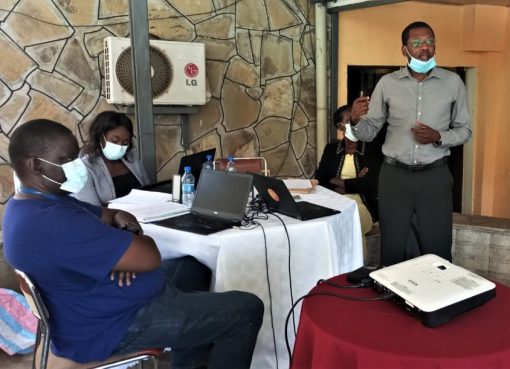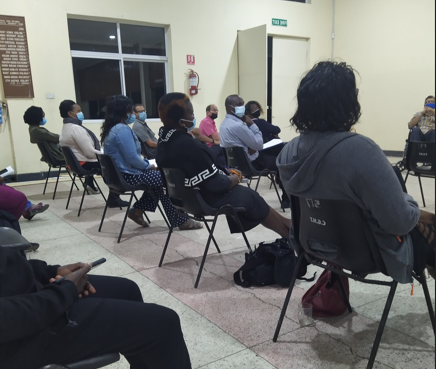Moi Teaching and Referral Hospital (MTRH) staff members led by their Chief Executive Officer (CEO), Dr Wilson Aruasa, took to Eldoret town streets to create awareness and inform people about Multiple Myeloma, commonly known as “silent cancer” experienced by the male gender who are 40 years and above.
“This disease mostly affects the blood. We advise people to go for regular screening for early detection and management,” said Dr Beatrice Melly, a hematologist at the MTRH, adding, the disease is severely accompanied by multiple complications like kidney failure, low blood counts, nervous system, high blood pressure alongside other common infections.
Dr Aruasa advised people to consume healthy nourishments that provide natural sugar in the body, ensure they do a lot of exercises and avoid junk and processed foods.
“Multiple Myeloma should be identified and diagnosed as early as possible, as we all know, prevention is better than cure and our work as MTRH is to teach other hospitals at the lower levels from dispensaries to health centres in order to provide quality services to their clients,” said Dr Aruasa.
Multiple Myeloma is a cancer that forms in a type of white blood cell called a plasma cell. Healthy plasma cells help fight infections by making antibodies that recognize and attack germs. In multiple myeloma, cancerous plasma cells accumulate in the bone marrow and crowd out healthy blood cells.
He added that they serve up to 25 counties from as far as Turkana, Homa bay, Bungoma, Elgeyo Marakwet, Samburu among others and educates them on how to handle and manage the disease especially at an early stage.
He further called upon people to ensure that they avoid alcohol completely as it largely contributes to many diseases like cancer and kidney failures.
“I started getting sick in 2017 December, before I was diagnosed with this blood cancer. I tried seeking for medical attention in many hospitals with no avail. The disease was accompanied with a lot of bone problems, it reached a point I could not walk, but thereafter, I started undergoing chemotherapy. I am now able to go about my daily duties,” narrated Juliet Odhiambo, a survivor.
Odhiambo encouraged all people to go for screening and if found positive, one should not worry but rather seek for medical treatment, ensure they take healthy food especially traditional cuisines and avoid alcohol consumptions.
“The main challenge that we are facing is to raise funds for treatment which is damn expensive. I am calling upon the government to intervene and help those who are not able to pay for the expenses,” she appealed.
By Judy Too and Felix Kipsang





